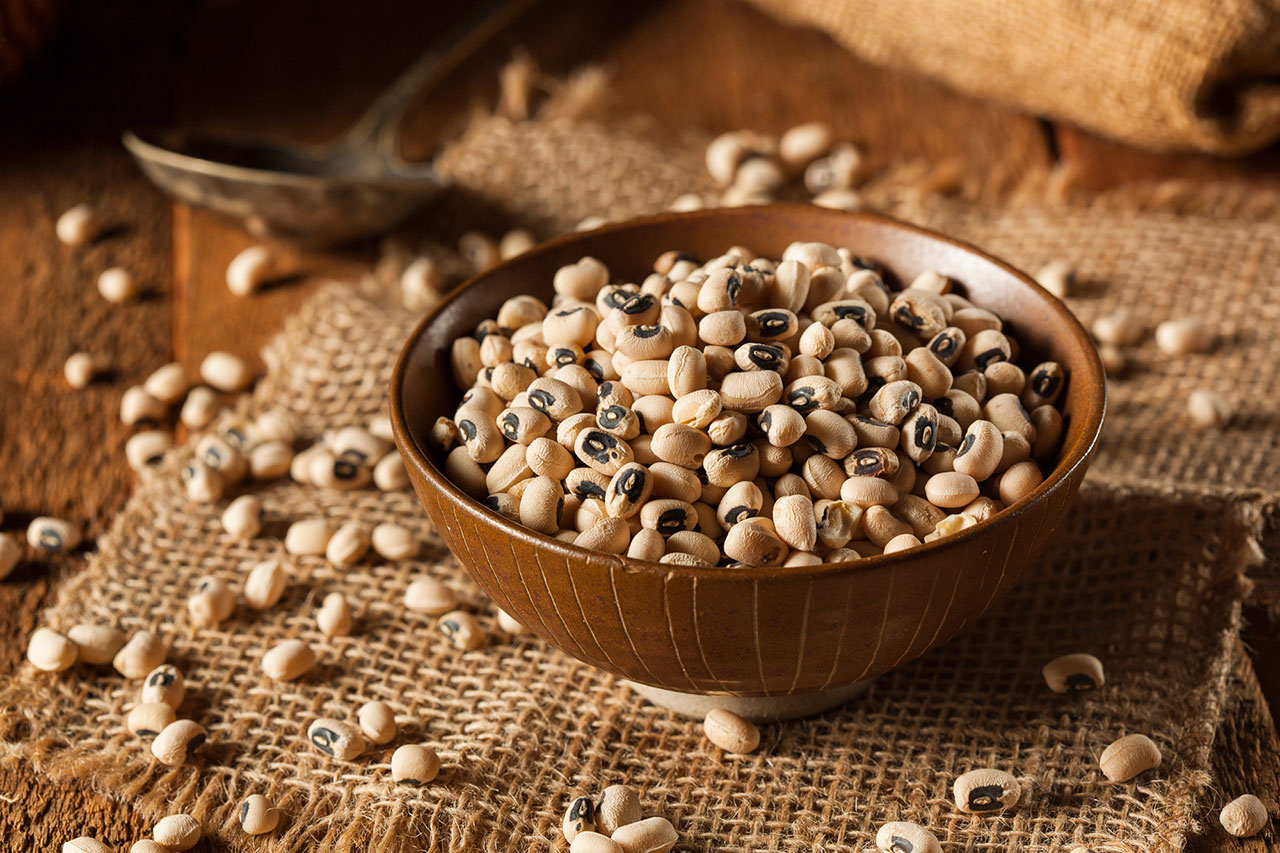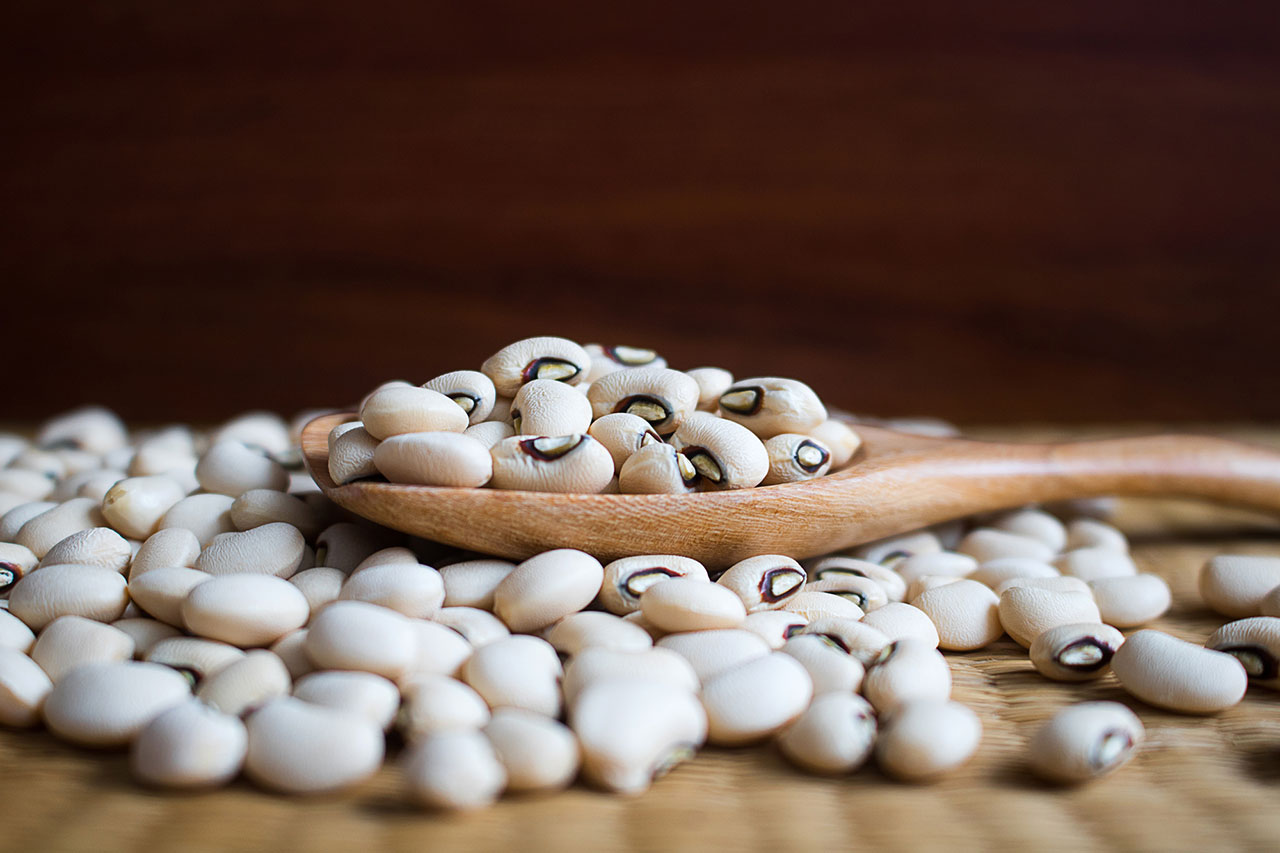Can Dogs Eat Black-Eyed Peas?
Any new food, including black-eyed peas, should be thoroughly researched before being given to your dog. Some people believe that black eye peas are safe for dogs to eat, while others think they can cause health problems. So, continue reading this article to get an informed decision.
What Are Black-Eyed Peas?
Black-eyed peas are a kind of legume used in a variety of dishes. They are native to Africa and have been brought to the Americas by enslaved Africans. They’re used in salads, stews, and soups. Black-eyed peas are prepared with ham or bacon in the Southern US. In Brazil, they are used in a dish called feijoada. Black-eyed peas are also popular in Indian cuisine, often used in curries and dals.
Black-eyed peas are an excellent source of several vitamins and minerals, including iron, potassium, and magnesium. For example, one cup of black-eyed peas provides about 15% of the daily recommended iron intake. Additionally, black-eyed peas are a rich source of folate, which is crucial for expecting mothers to avoid congenital disorders.
What Are the Nutritional Benefits of Feeding Your Dog Black-Eyed Peas?
Blackeyed peas are a good source of protein, dietary fiber, vitamins, and minerals for humans and dogs. In addition, they offer numerous health benefits for canines, such as promoting a healthy coat, preventing weight gain, and reducing the risk of heart disease. Read on to learn about the ten nutritional benefits of adding blackeyed peas to your dogs’ diet!
1. Blackeyed peas are a good source of protein for dogs.
Protein is an essential nutrient for all dogs, and black-eyed peas are an excellent source of protein. Black-eyed peas are a great choice for dogs who need a little additional protein in their diet because one cup of cooked black-eyed peas has about 13 grams of protein.
2. Blackeyed peas are high in dietary fiber.
Dietary fiber is an essential nutrient for dogs, and black-eyed peas are a good source of fiber. One cup of cooked blackeyed peas contains around 7 grams of dietary fiber, which can help promote a healthy digestive system in dogs.
3. Blackeyed peas are a good source of vitamins and minerals.
Blackeyed peas are a good source of several essential vitamins and minerals, including iron, potassium, amino acids, and magnesium. One cup of cooked blackeyed peas contains:
· Around 15% of the Daily Value (DV) for iron.
· 20% of the DV for potassium.
· 8% of the DV for magnesium.
4. Blackeyed peas can help promote a healthy coat in dogs.
The high protein and fat content of blackeyed peas can help promote healthy skin and coats in dogs. In addition, the fatty acids in blackeyed peas can help keep your dog’s coat looking shiny and lustrous. So, add small portions of black-eyed peas to your dog’s food regularly.
5. Blackeyed peas can help prevent weight gain in dogs.
The high fiber content of blackeyed peas can help prevent weight gain in our canine friends. In addition, dietary fiber helps promote a feeling of fullness, which can help prevent your furry friend from overeating and improve their weight. So, include a moderate amount of black-eyed peas in their daily diet.
6. Black-eyed peas can help reduce dogs’ heart disease risk.
The high potassium content of these healthy snacks can help reduce the risk of heart disease in dogs. Additionally, studies have shown that a potassium-rich diet can reduce the risk of heart attacks and stroke. Potassium also helps control blood pressure. So as pet owners, give your dog moderate amounts of black-eyed peas as a special treat.
7. Black-eyed peas can help improve joint health in dogs.
Black-eyed peas include significant amounts of vitamins C and K, which can help dogs’ joints function better and provide strong muscles. Vitamin C helps to maintain the collagen in joints, while vitamin K helps to reduce inflammation. You can add this treat to your homemade dog food.
8. Black-eyed peas can help improve cognitive function in dogs.
The high levels of iron, B vitamins, and omega-3 fatty acids in blackeyed peas can help improve cognitive function in dogs. These nutrients are essential for neuronal function and development, and a diet deficient in these nutrients has been linked to cognitive decline. Although there’s a canned variety of this type of peas, you can check it out in some local grocery stores to incorporate it into your dog’s main meal.
9. Black-eyed peas can help reduce the risk of cancer in dogs.
The high levels of antioxidants in raw black-eyed peas can help reduce the risk of cancer in dogs. Antioxidant-rich diets are linked to a reduced risk of acquiring many types of cancer. This is because antioxidants work to protect cells from cellular damage.
10. Blackeyed peas are a good source of energy for dogs.
The high carbohydrate content of black eye beans makes them a good source of energy for dogs. Carbohydrates are the body’s preferred fuel source, and blackeyed peas are a great way to replenish your dog’s energy stores after exercise or play.
Feeding your dog blackeyed peas can provide several nutritional benefits. So next time you’re at the grocery store, pick up a bag or two of blackeyed peas to add to your pup’s diet!
Risks Associated With Feeding Black-Eyed Peas to Dogs
You’ll want to be sure to read this before you reach for that can of blackeyed peas the next time you’re in the dog food aisle! Be sure to become familiar with them before deciding whether or not to feed your dog this kind of food.
1. Intestinal blockages: Blackeyed peas can cause intestinal blockages in dogs because they contain a lot of fiber and may expand in the stomach, causing a blockage. If your dog consumes too many blackeyed peas, it could end up with a life-threatening condition called gastric dilatation-volvulus (GDV), which is a twisted stomach.
2. Pancreatitis: Blackeyed peas are also high in fat, leading to pancreatitis in dogs. Pancreatitis is a severe condition that causes the pancreas to become inflamed. Your dog may experience excruciating pain, and other significant health issues may develop.
3. Allergic reactions: Even small amounts of black-eyed peas may cause allergies in some dogs, typically manifesting as a skin reaction, such as itching, redness, or swelling. If your dog has food allergies, they can experience any of these symptoms, So it’s essential to take them to the vet immediately.
4. Diarrhea: Blackeyed peas can cause diarrhea in dogs because they are heavy in fiber and have laxative properties. Giving your dog a pot of water is a good idea to prevent dehydration if they experience loose stools or diarrhea after eating black-eyed peas.
5. Gas: Blackeyed peas can also cause gas in dogs. They can induce flatulence since they are high in fiber and can ferment in the stomach. If your dog is particularly gassy after eating blackeyed peas, you may want to cut back on their portion size or avoid giving them this food altogether.
6. Obesity: Blackeyed peas are high in calories, leading to weight gain and obesity in dogs. Diabetes, musculoskeletal troubles, and respiratory problems are just a few illnesses your dog is more likely to develop if they are overweight or obese.
7. Canine diabetes: Eating too many peas can lead to canine diabetes because they are high in sugar and can raise blood sugar levels. If your dog has diabetes, monitoring their blood sugar closely and giving them the appropriate insulin injections is essential.
8. Nutritional deficiencies: Blackeyed peas may also cause nutritional deficiencies in dogs because they are not a complete source of nutrition and do not contain all the essential nutrients that dogs need. Therefore, if your dog has a diet primarily of blackeyed peas, it could lead to a deficiency in vitamins, minerals, and protein.
9. Toxic to some dogs: Blackeyed peas can be toxic to some dogs because they contain a substance called saponin, which, when taken in large quantities, can be hazardous. A large black-eyed pea meal may cause your dog to vomit, have diarrhea, and become lethargic.
10. May contain harmful bacteria: Large amounts of Blackeyed peas may also contain harmful bacteria because they are often grown in fields that have animal waste. If your dog consumes blackeyed peas contaminated with bacteria, it could become ill. Therefore, it is crucial only to feed your dog this food if it has been prepared in order to eradicate any possibly hazardous bacteria.
The answer to the question of whether or not dogs can eat black-eyed peas is yes. They can. Dogs can digest black-eyed peas, and they will provide some nutritional value to your pet dog. There are many pea varieties; in fact, you can search for black-eyed pea recipes to incorporate into their diet. However, it would help if you didn’t give your dog too many black-eyed peas, as they could experience an upset stomach from eating too many.



